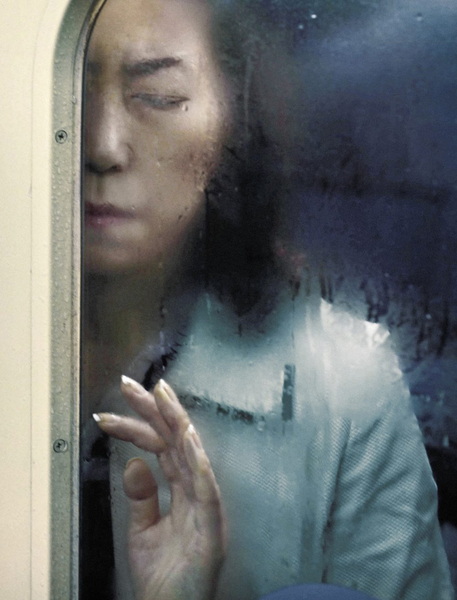
Public
Stimulated by the renewed global interest in street photography, this year’s festival explores the theme “Public” in a series of primary exhibitions, site-specific installations, and events across the city. Drawing attention to social and political issues that are framed by photographic images, the works presented challenge the distinctions between our private lives and the public sphere. CONTACT 2012 highlights how photography shapes collective experience and makes things public.
Iconic photographs capture the spirit of the street, turning a fleeting moment into a representation of concepts that resonate and circulate far beyond their original context. Our exhibitions with photographs by major figures from the 20th century—such as Berenice Abbott, Henri Cartier-Bresson and Weegee—provide a historical framework for the festival and reveal their enduring influence on contemporary image-makers. These shows emphasize the ways photography has been used to convey the complexities of life within an urban setting and the significance images have to the formation of our collective identity.
The events that led to rebellions across the Middle East and widespread pro-democracy movements used social media as a catalyst. Inspired by the uprisings in Egypt and Tunisia, the Occupy movement began in New York City in September 2011 and spread around the world. The ubiquity of digital and cell phone cameras, and the global circulation of images online, reinforces the ongoing phenomenon of street protest. Looking at how the camera is used in contemporary life to influence behaviour and instigate action, a two-venue exhibition, Public: Collective Identity | Occupied Spaces, presents photographic works by 16 artists, as well as a number of anonymous individuals, to examine current social and political issues and events. Ranging from images that capture collective harmony to projects that convey civil discontent, this international group show—including Ai Weiwei from China, Barry Frydlender from Israel, and Noh Suntag from Korea—explores the social structure of contemporary life and photography’s role in the public performance of identity as an important means to respond to, intervene within, and document political actions.
Images frame and reflect upon socio-political events and this year’s festival includes a number of projects that emphasize photography’s engagement with warfare and activism. An exhibition of recent photographs by Larry Towell and Donovan Wylie provides a compelling visual narrative about surveillance and the social realities in Afghanistan. The late Tim Hetherington’s Sleeping Soldiers, on billboards in Toronto and across Canada, take on added resonance as the Canadian forces in Afghanistan shift their focus from combat to training. Another powerful reminder of the risks facing those involved in conflict overseas, Scott McFarland’s mural at Queen and Shaw depicts a repatriation ceremony for a Canadian soldier killed in combat. Jim Goldberg’s Open See project gives a public voice to the displaced peoples of Eurasia and Africa—whether fleeing war or seeking a better life. Within the present-day culture of global street protest, the collaborative duo of Sabine Bitter and Helmut Weber present works that reactivate 1960s student demonstrations.
Turning the focus to personal and everyday experiences, several artists capture individual and collective behaviour in public space to look at issues of spectacle, voyeurism, and privacy. Bill Sullivan’s installation at Pearson Airport presents an extended portrait of an anonymous public, while Melanie Manchot creates a commissioned series of portraits of the Distillery District’s working population based on archival images. Lynne Marsh’s video and photographs foreground the various types of stages upon which our public spectacles are performed; while Lynne Cohen’s exhibition, Nothing is Hidden, reveals the unexpected dimensions of public and private interior spaces. For Album, Max Dean will travel to selected locations around Toronto to give away 500 family photo albums he collected over the past 10 years. Placing photographic imagery in Toronto’s subway, Derek Besant’s portraits depict the random thoughts of strangers, and We’re in this Together uses platform posters to show photographs of different communities in the city, while TTC LCD screens feature images submitted by Torontonians in response to an open call.
The extensive range of images in this year’s CONTACT is a testament to the powerful engagement society has with the medium of photography. Its ongoing relevance to the ways we interpret the world and find our place within it—as private individuals and as members of the public—is undeniable, not only by virtue of the sheer volume of images that circulate throughout the public sphere, but also as evident in any one image made by these artists.
Bonnie Rubenstein
Artistic Director